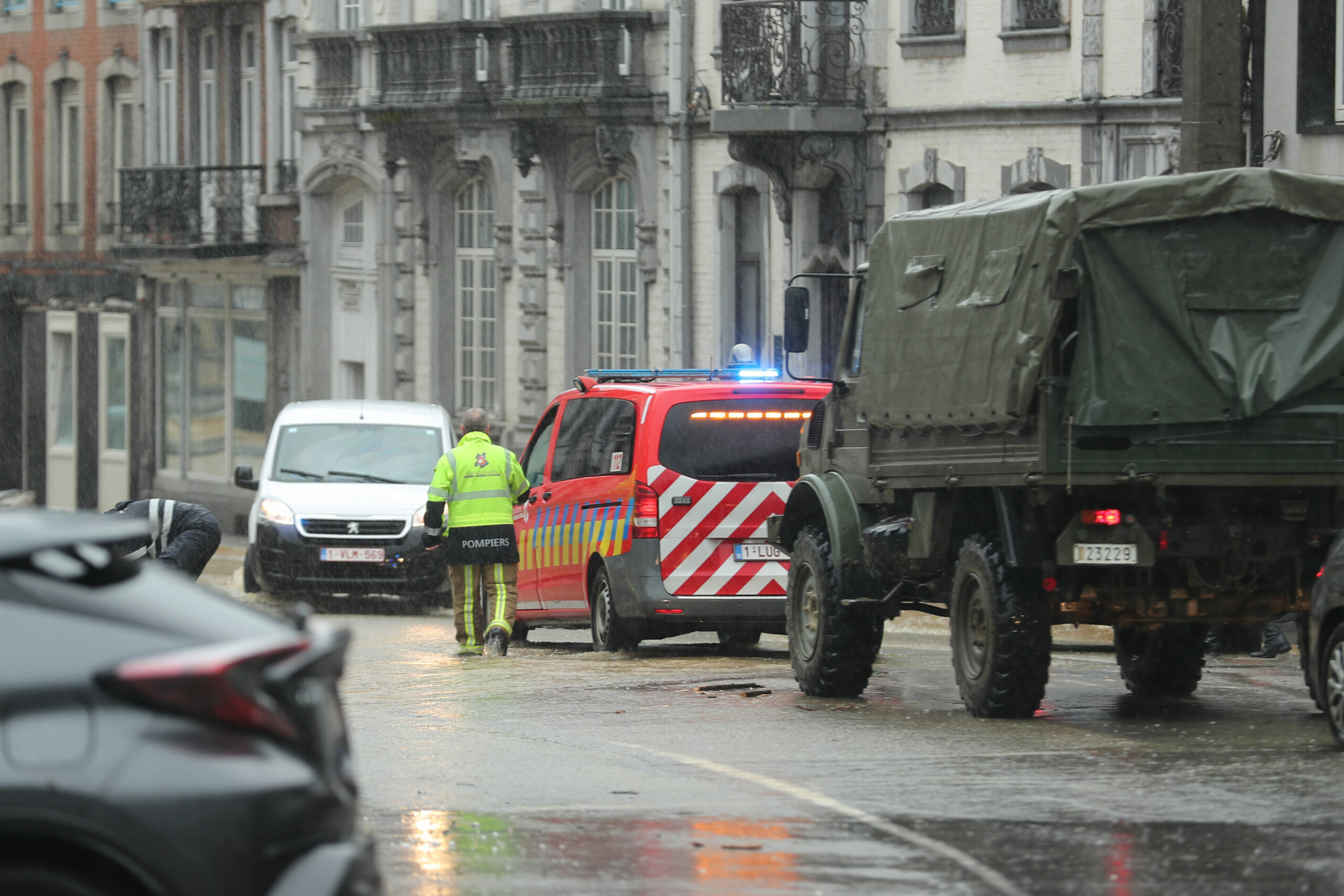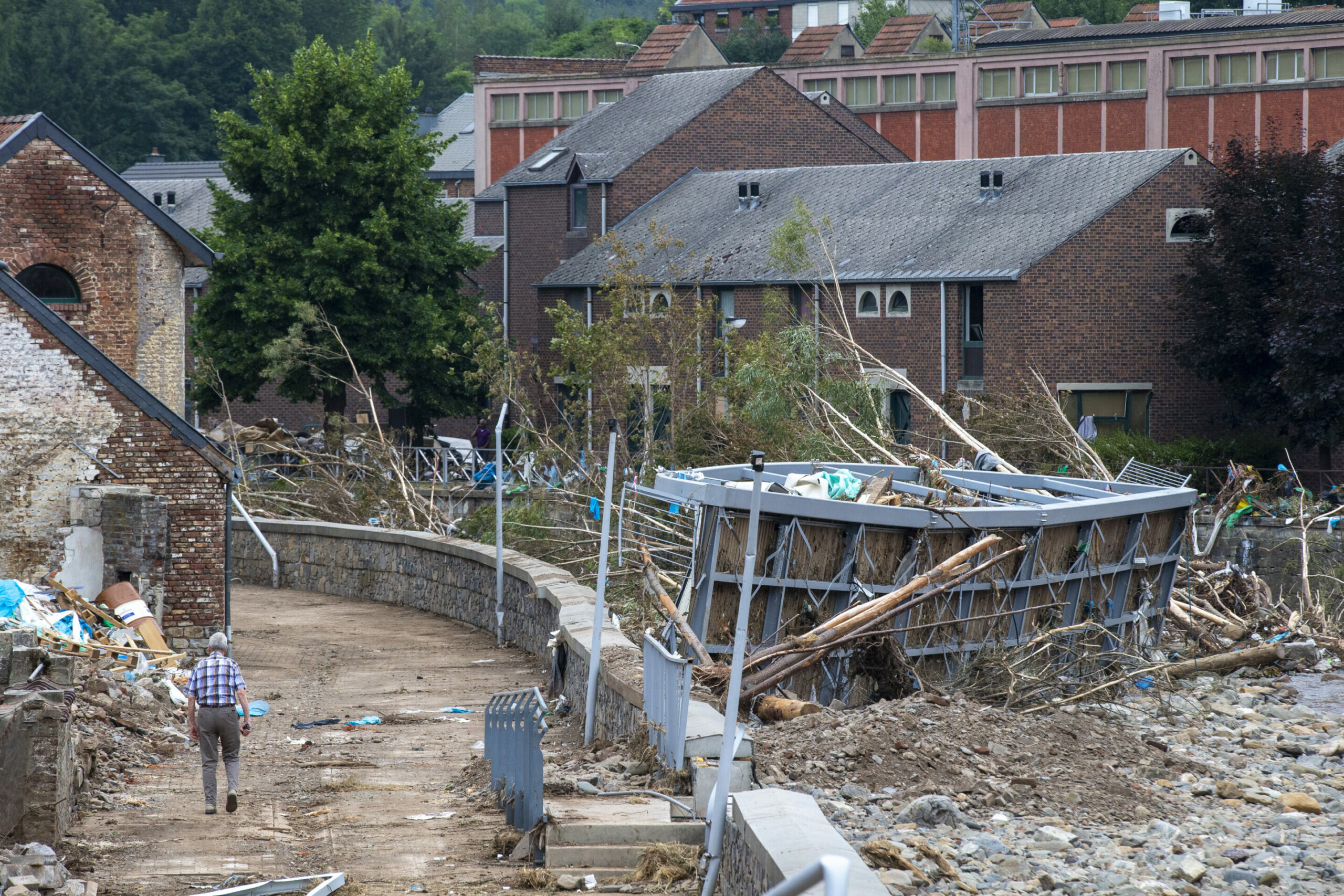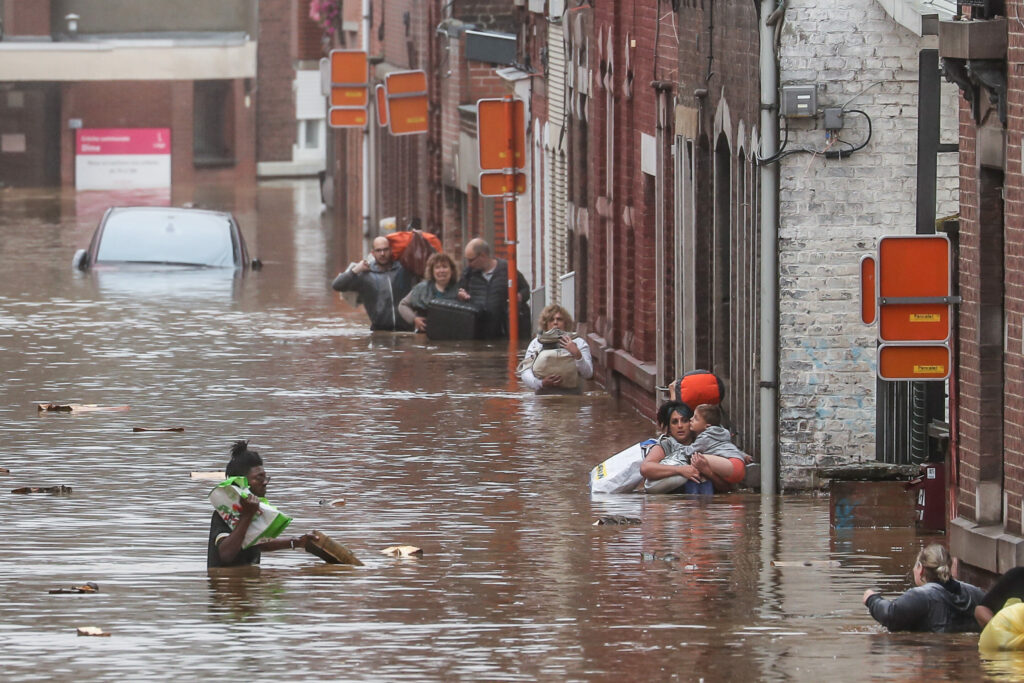Belgium's summer 2021 floods were the worst natural disaster in recent years, taking away the lives of 41 people. But from better collaboration between authorities and experts to listening to victims and their trauma, the crisis also taught the country how to better prepare for future tragedies.
The municipality of Limbourg, located on the banks of the Vesdre, was one of the worst-affected communes during the July 2021 floods. Mayor Valérie Dejardin ordered the evacuation of the most at-risk neighbourhoods before waters began to rise but the damage to the village was disastrous.
"At one point during the night, we were without electricity, we had no means of communication, we had to manage things blindly," she said during Belgium's first conference on the causes and consequences of climate extremes on Monday. She argued it was important to reconstruct what happened in the village to understand how things have changed for the better.
"You never come out of a crisis neutral. We had to relive the situation to improve where we made mistakes. We had to try and derive as much benefit as possible from it, to avoid the next crisis being experienced in the same way," Dejardin said.
Local response
The municipality organised a series of conferences for residents to ensure they understand what a natural disaster is, what constitutes a crisis, and what to do in the event of flooding. This helped nurture a risk culture of sorts, to ensure people realise that the river can pose a risk, but that they don't have to be afraid of it, but instead manage it.
"We organised training sessions, pinned up information sheets, and we're carrying out exercises more regularly," Dejardin told The Brussels Times. To set up these training sessions, the commune listened to feedback from the victims regarding how they experienced the floods and what their needs were in a crisis.
She stressed that while citizens cannot replace authorities in response to crises, the public is a player.

Flooded streets in Spa. Credit: Belga/ Bruno Fahy
"I think we need to democratise safety. Many people had the impression that safety is managed by the authorities and the population follows blindly," she said. "But we see them as an integral part of the crisis management process. When people are trained and know how to react, and understand why they're being told to evacuate, I think it's a win-win situation for both the authorities and the public."
Limbourg also put in place an evacuation plan. "If we decide to evacuate people in one area, they must go to a certain place to be received, and use a particular route."
Bringing together experts and authorities
Covid-19 measures were still in place during the 2021 floods, which at first risked complicating the response and collaboration between various forms of government. However, in hindsight, videoconferences were the most effective way of collaboration, said David Denehauw of the Royal Meteorological Institute (RMI).
"It brought experts and authorities around the table directly, which in person is much more difficult to achieve." He advocated to continue in this way, a proposition backed by several players. This resulted in the creation of CELEX (Cellule d'Expertise), giving a more active role to experts in the response to crises.
As soon as the RMI issues a code yellow alert for precipitation (or forest fire risks), a meeting of the CELEX can be called. "We bring together the authorities involved as well as the fire brigades, hydrologists, dam specialists, and many more experts, who are given an in-depth weather forecast."
"This is a major improvement from a communication point of view. It gives authorities and non-experts the chance to pose questions, and we can explain how the weather will impact them locally or per region," Denehauw said.
Crisis Centre spokesperson Antoine Iseux mirrored the importance of all relevant players knowing each other and being in regular contact. "Because that's what's going to lead to decisions being taken that won't disrupt others."
Alarming people
The large-scale nature of the 2021 flooding challenged the response system implemented by the Crisis Centre, including having to communicate recommendations to citizens all in different locations. "Some were in the Vesdre valley while others found themselves in the Lourde valley, for example, adding complexity for those involved in crisis management."
Iseux stressed that this highlighted the importance of local actors as first responders, but also the need to better inform people through BE Alert, an alarm system operated by the Crisis Centre that allows authorities to inform citizens in emergencies.

A destroyed pedestrian bridge lying on the bank of the river Vesdre in the city centre of Limbourg. Credit: Belga/ Nicolas Maeterlinck
"Since the floods, we have been looking into how we can improve warning and alerting the public," he said. This was one of the recommendations that were made by the different groups who reassessed the crisis. "We want to understand how we can reinforce the use and people's knowledge of BE Alert."
However, Dejardin pointed out that BE Alert does not inform people without a mobile phone, and fails when people switch their phones off – for example when they sleep at night. It also doesn't take into account a loss of cellphone reception. "I think that the mass reintroduction of sirens per municipality provides a solid way of warning the entire population," she stressed.
Until then, Limbourg works with a system of neighbourhood referents, people who are trained to communicate with locals in the event of a problem or crisis.
Trauma
In the past, the focus in the response to natural disasters was technical and largely ignored the psychological impact on the victims. "Yet, it is unimaginable how it affects people who have lost a loved one and then have to return to the empty, ruined house, knowing this person will not return," said Dejardin.
In the aftermath of the floods, Limbourg offered psychological support for victims as part of the social network offering in the commune. "This is an investment that has been very strongly reinforced in emergency planning." Via a network organised by the Health Ministry, this is now structurally being provided both on the Dutch- and French-speaking side.
Dejardin added this is vital, as the post-traumatic follow-up of a crisis can last several years. She added that, for this reason, Limbourg is asking the Walloon Region to recognise the area as a disaster zone for ten years. "This helps when it comes to urbanisation and reconstruction, but it is also vital from a psychological aspect, as people today still need help and need to be monitored, even three years later."

